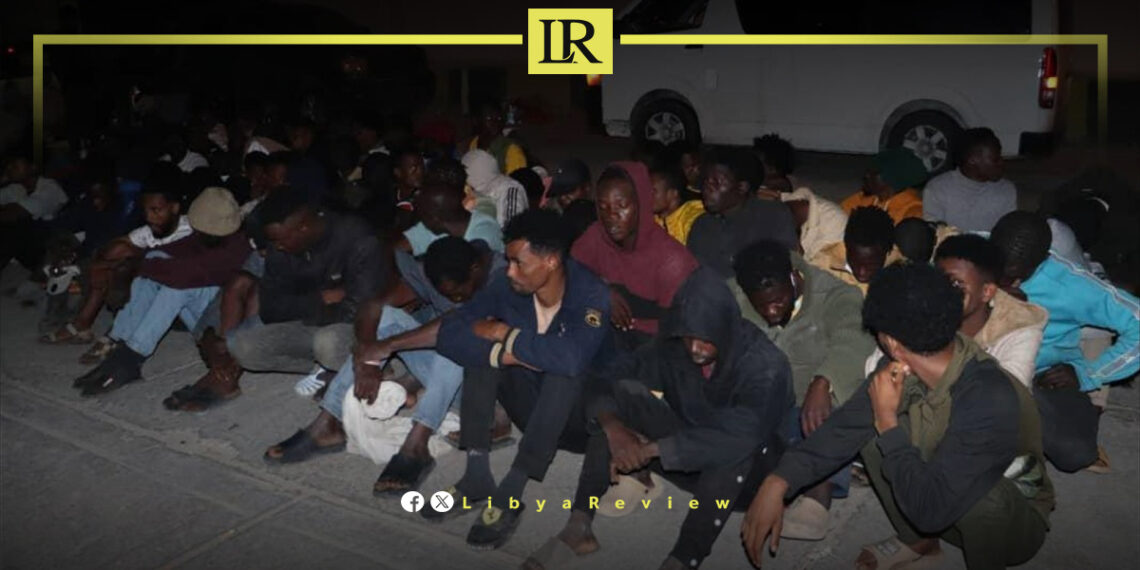On Tuesday, Libyan security forces detained 90 migrants in Sabratha who were allegedly about to be smuggled to Europe by a human trafficking gang. The migrants, from various African nations, were discovered in a hideout used as a staging point for illegal crossings of the Mediterranean.
Sabratha, a city in western Libya, is frequently used by traffickers as a key launch site for unauthorized migration to Europe. Libyan authorities have intensified efforts to intercept these operations, with ongoing arrests in areas where trafficking is prevalent. These interventions underscore the challenges Libya faces in managing migration routes and curbing human trafficking from its borders.
According to the Sabratha Security Directorate, the successful raid was carried out by intelligence and patrol units who acted on a tip-off, detaining the migrants before they were taken to the coast. Legal actions have been initiated against those involved in the smuggling network, and the migrants have received the necessary care and assistance.
Authorities in Sabratha urged citizens to support these efforts by reporting any suspicious activities, as trafficking networks continue to pose a serious risk. Libya remains a crucial transit point for migrants seeking passage to Europe, despite the dangers of the journey.
In response, Libya has been working with the International Organization for Migration (IOM) to provide safer options through a voluntary return program. This initiative has facilitated the return of over 80,000 migrants from Libya to their home countries since 2015, with support from the United Nations.
In a separate incident, Libya’s Interior Ministry reported that security patrols rescued 13 African migrants who were found stranded in the Hamada Al-Hamra desert. The migrants, who had lost their way in the vast desert, were provided with medical care and transported to a safe location.
Libya’s expansive deserts pose severe risks for migrants attempting remote border crossings. Authorities have previously recovered the remains of migrants who perished after becoming lost in these harsh conditions, highlighting the dangers faced by those seeking to enter Libya through isolated routes.
These recent incidents reveal Libya’s ongoing struggle to combat human trafficking and manage its role as a gateway for migrants aiming to reach Europe.
The country’s anti-trafficking efforts are part of broader efforts to address security and humanitarian challenges associated with migration, providing safer alternatives for migrants while targeting trafficking networks.


